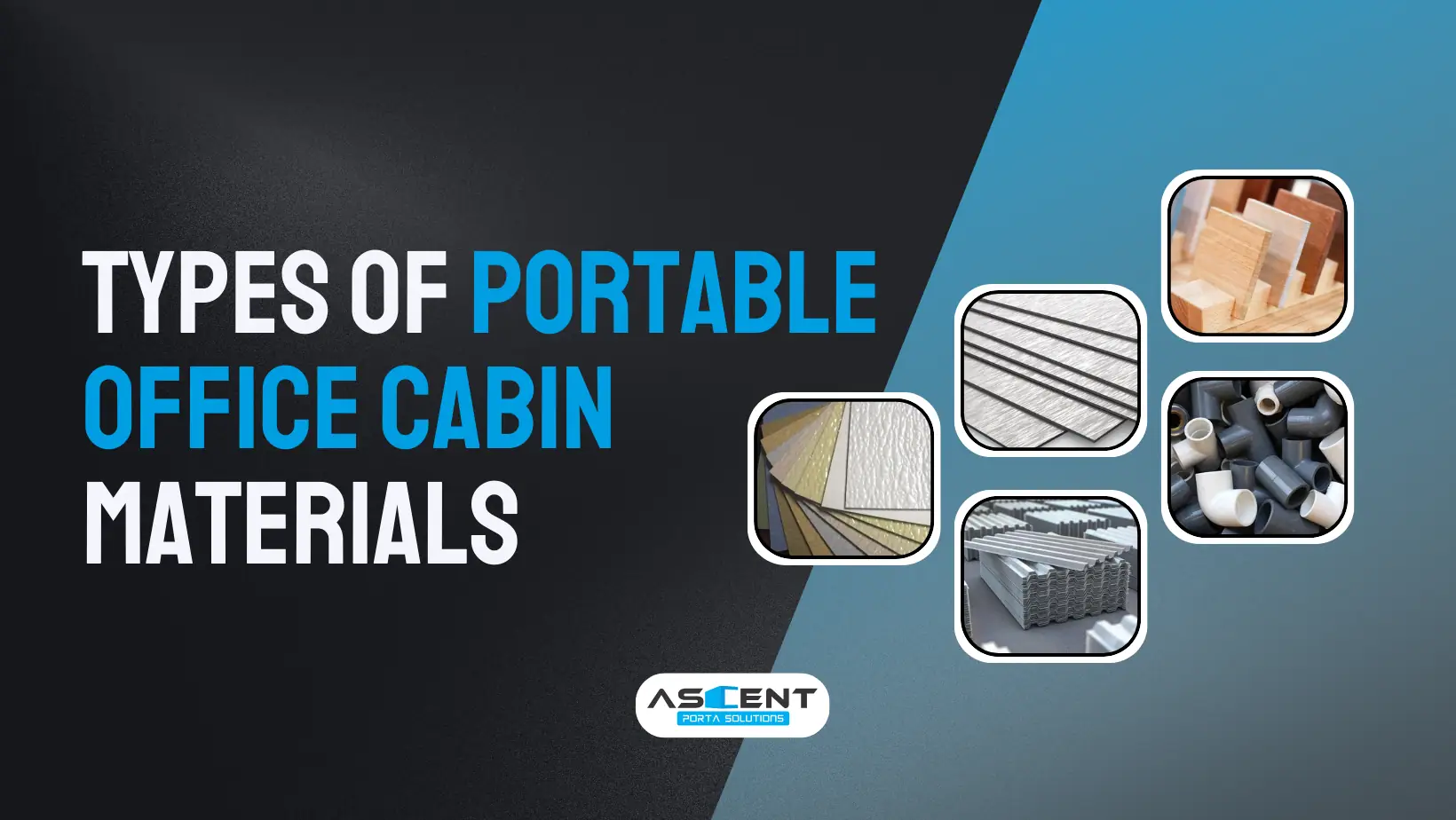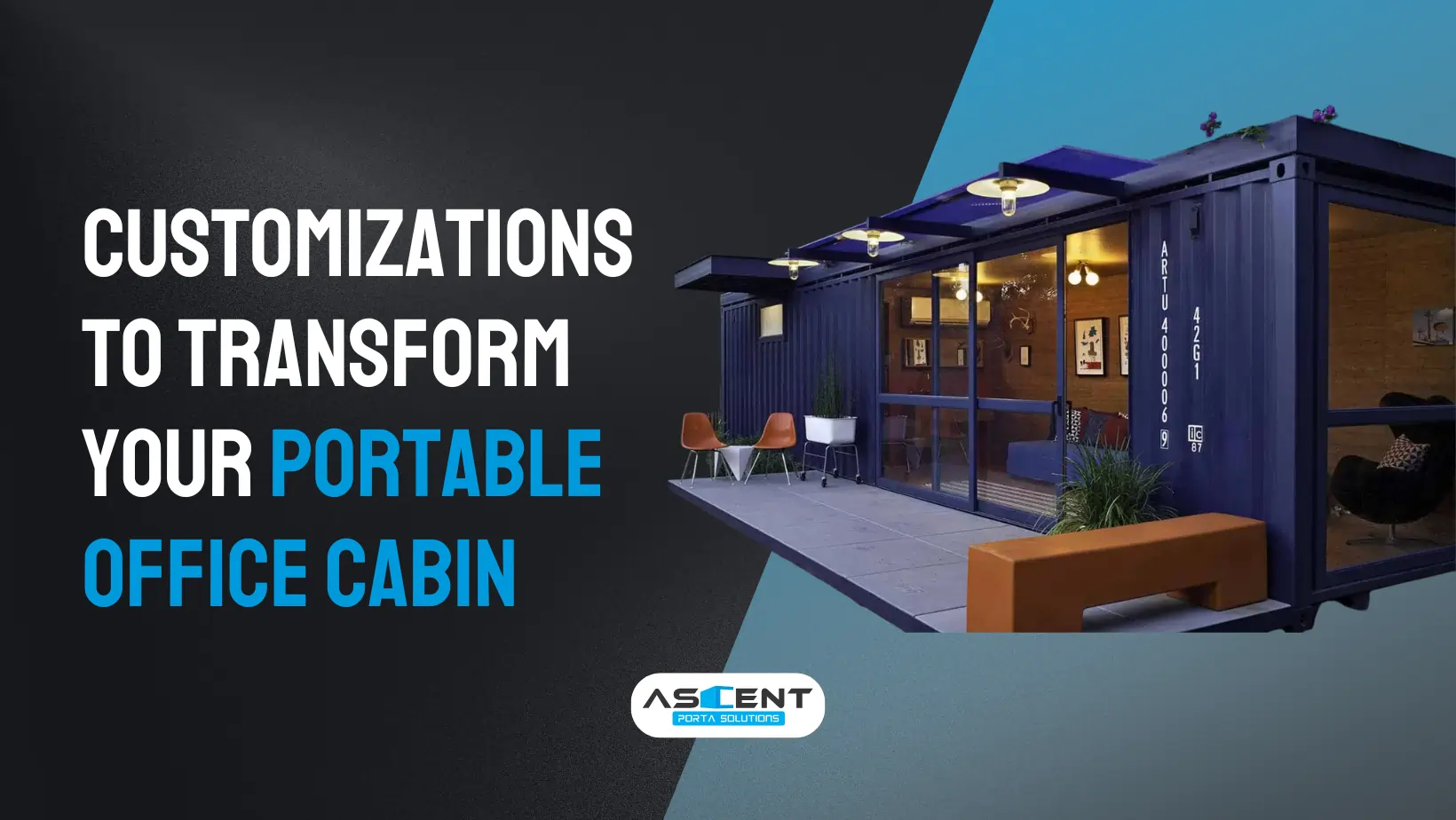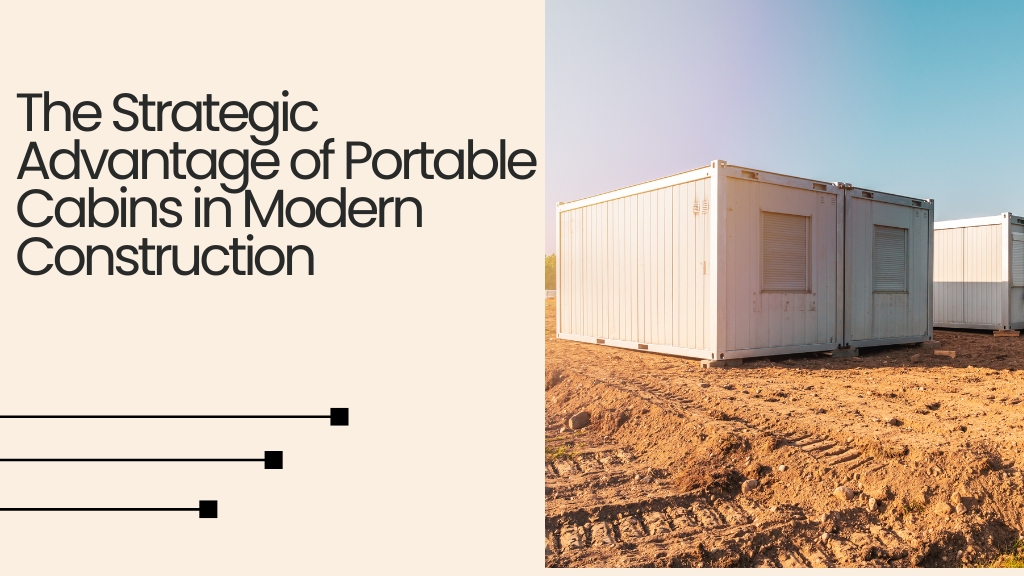
Portable office containers are used for various purposes be it large remote office requirement, start up office, school purpose or construction site office.
Depending on the purpose and location of the setup choosing the material of portable office cabin is important. We will discuss types of material you can find in office cabin.
Material of Portable Office Cabin
1. Wooden Office Cabin:
Wood cabins are generally used for aesthetic purposes as they needs higher maintenance. Let’s discuss their pros and cons:
Advantages:
- Wood gives a natural and aesthetically pleasing look to portable office cabins, giving a sense of warmth and peace to the overall design.
- It also provides excellent thermal insulation, making sure that the interiors remain cool during summers and warmth is maintained during winters, making it a comfortable choice for the people.
- Wooden cabins are an eco-friendly option, when sourced from the sustainable supplier reducing the environmental impact with its use.
Disadvantages:
- It is easier for wooden cabins to get damaged due to termites and climate moisture.
- To maintain the appearance and material strength it requires timely polishing or application of protective coatings, which makes it stand for long-term.
- Wood is less durable than other materials and may not withstand harsh environmental conditions as effectively.
Best For:
Areas with mild climates and when an aesthetically pleasing, eco-friendly option is preferred.
2. Galvanized Iron (GI)
Advantages:
- GI is an extremely durable material that resists corrosion, making it an ideal option for open locations having changing environmental conditions.
- It can withstand harsh weather, including heavy rains and intense sunlight ensuring long-term reliability and performance.
- Iron office cabins require lesser maintenance than wooden cabins, they do not need frequent repairs or protective treatments, making it a practical option for long term use.
Disadvantages:
- One significant drawback is that GI can absorb heat during hot weather, making the cabin interiors uncomfortable unless proper insulation is added, which could increase costs.
- As a relatively heavy material, it may become challenging during transportation potentially leading to higher expenses.
Best For:
Iron office cabins are best suited for industrial or outdoor sites where strong, long-lasting structures are required to withstand tough conditions.
3. PVC (Polyvinyl Chloride)
Advantages:
- PVC is a lightweight material, making it highly portable and easy to transport, especially for temporary or frequently relocated office setups.
- Its resistance to moisture and rust makes it particularly suitable for use in humid regions or areas prone to dampness, ensuring durability in such conditions.
- PVC is a cost-effective choice for portable office cabins, offering a low-maintenance solution that does not require frequent repairs or upkeep.
Disadvantages:
- Compared to strong materials like metal, PVC lacks lastness and may not be the best choice for long-term or heavy-duty applications.
- Prolonged exposure to UV rays can cause PVC to degrade or become brittle over time, reducing its lifespan in outdoor settings.
Best For:
PVC cabins are ideal for temporary office setups in regions with mild weather conditions where a budget-friendly and portable solution is required.
4. FRP (Fibre-Reinforced Plastic)
Advantages:
- Fibre-Reinforced Plastic is a lightweight yet highly durable material that provides excellent resistance to corrosion, making it a reliable option for portable office cabins.
- It offers superior insulation against heat and electricity, enhancing the comfort and safety of the cabin interior.
- FRP requires minimal maintenance and is available in a variety of designs, allowing for customization to meet specific needs.
Disadvantages:
- The initial cost of FRP can be higher than more affordable options like PVC, making it less appealing for budget-conscious projects.
- Despite its strength, FRP can crack under extreme impact, which may compromise its structural integrity in certain conditions.
Best For:
FRP is a great choice for offices located in coastal or humid areas where resistance to corrosion and low maintenance are essential requirements.
A quick difference between PVC and FRP:
- PVC: A thermoplastic material made of polyvinyl chloride, known for its lightweight, smooth surface, and ease of moulding.
- FRP: A composite material consisting of a polymer matrix reinforced with fibres (typically glass, carbon, or aramid), offering greater strength and durability than PVC.
5. Mild Steel (MS)
Advantages:
- Using mild steel office cabin will surely provide excellent strength which can support heavy interiors loads and withstand tough conditions.
- It is a cost-effective alternative to stainless steel, offering robust performance at more affordable price.
- If you are looking for customized shapes and sizes to create space for specific design requirements mild steel is a great option.
Disadvantages:
- Without proper treatment, mild steel is prone to rust and corrosion, especially in humid or coastal environments, which can reduce its lifespan.
- Its weight poses challenges for transportation and portability, potentially increasing costs and logistical complexity.
Best For:
Mild Steel is most suitable for permanent or semi-permanent office setups requiring a stable structure capable of handling bad environments.
Material Comparison Table:
Here is a quick comparison table for each material to help you make better decision:
Material | Durability | Weight | Cost | Insulation | Weather Resistance | Best For |
Wood | Moderate | Lightweight | Moderate | Excellent (thermal) | Poor (susceptible to termites, moisture) | Aesthetic and eco-friendly cabins in mild climates. |
Galvanized Iron (GI) | High | Heavy | Moderate | Low (needs insulation) | Excellent (corrosion-resistant) | Industrial or outdoor sites requiring strong and long-lasting cabins. |
PVC | Low to Moderate | Very Lightweight | Low | Basic | Moderate (moisture-resistant, but UV-sensitive) | Temporary setups in mild weather regions. |
FRP | High | Lightweight | High | Excellent (thermal and electrical) | Excellent (corrosion-resistant) | Coastal or humid areas needing durable, long-term solutions. |
Mild Steel (MS) | Very High | Heavy | Moderate | Low (needs insulation) | Moderate (rust-prone if untreated) | Permanent or semi-permanent cabins requiring structural strength. |
Looking for a trusted portable office cabin manufacturer to bring your vision to life? Explore a wide range of customizable, high-quality portable office cabins at Asprefab. Let us help you create the perfect solution for your workspace needs!


